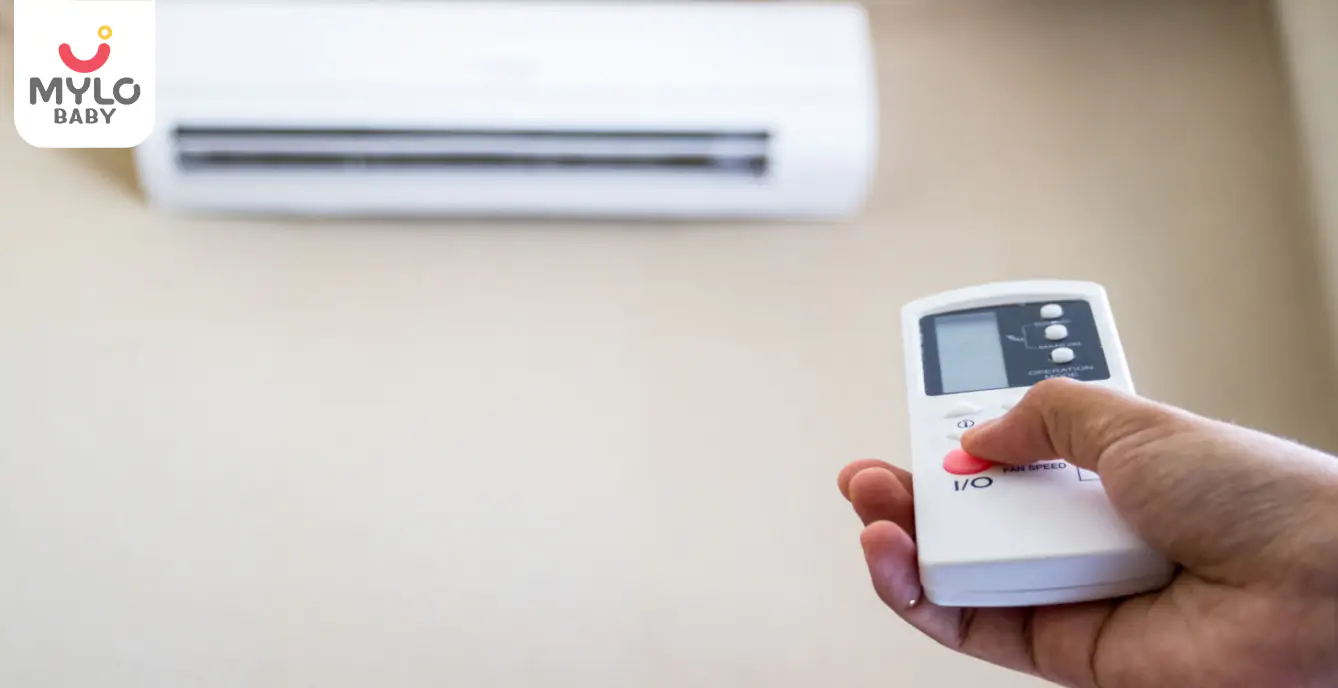Home

Emotions & Behaviour

How to Teach Your Toddler Not to Hit?
In this Article

Emotions & Behaviour
How to Teach Your Toddler Not to Hit?
Updated on 20 January 2023
As parents you witness your baby pass through many stages of physical, mental and emotional development. As your baby graduates to being a toddler, these stages of development become more evident and frequent. Among many such development phases is the toddler hitting phase which parents most dread. Your toddler could be hitting you, a sibling or another kid and it becomes embarrassing and challenging all at once.
Most parents wonder whether something is wrong with their parenting or with their child. Rest assured; you are not alone in this and parents worldwide go through their toddler hitting phase. In this article, we will discuss everything you need to know about toddler hitting, why it happens and how to make it stop.
Why do Toddlers Hit?
First, let’s understand what are the reasons behind the toddler hitting phase:
1. Testing the limits of acceptability
Most of your toddler’s behaviour whether it is screaming in the market or rejecting their food is a part of testing what is acceptable. Children at this stage are keen to discover what will happen if they do a particular thing. So, even toddler hitting is a part of their learning and exploration process.
2. Lack of knowledge of good or bad
Unless told and explained, toddlers have no idea of what is socially acceptable behaviour and their moral compass is weak. Toddlers sometimes may even hurt someone else for fun or in their curiosity to discover what will happen next.
3. Lack of self-control
Toddlers have little or no self-control. Whether they are feeling frustrated, bored or happy they tend to express it through hitting. Parents can expect to see an improvement in their toddler’s impulse control between the ages of 3 to 9.
4. Unable to process feelings
Another reason why toddlers may start hitting either themselves or others is that they don’t know how to handle their emotions. Toddlers whether they feel frustrated or distressed don’t have the language skills to express themselves or the self-control to stop and may resort to hitting.
What to do When Your Toddler Hits?
Thankfully, toddler hitting is not just a phase you have to deal with, there are steps you can take to control and prevent your toddler from hitting. You can assess multiple options and judge which one works best for your child.
1. Restraining physically
If your toddler is trying to hit themself or others, your first instinct should be to restrain them physically. You can hold back their hands or take them in an embrace to stop them right in their tracks and help them calm down. Once the moment has passed, you can redirect them to something else or talk to them politely about why hitting is bad.
2. Removing from the situation
Calmly removing your child from the situation can be one of the most effective solutions to toddler hitting. You can take your child back to your car if you’re at a public place or in a quiet corner of the house if you’re at home. This will help your toddler understand that there are consequences of hitting and you can take the time to discuss, evaluate and help them calm down.
3. Discussing alternatives
It may not have occurred to your toddler that there are other ways to deal with their frustration, anger, jealousy and sadness than hitting. Calmly explain and model the alternate behaviours to your child such as speaking up, walking away or telling an adult about their problems.
4. Redirecting
You can also redirect your toddler to do more appropriate behaviour than hitting. For instance, you can hold the hand they were using to hit, take them for a walk or read a book with them. However, make sure that their hitting is not getting more attention than their not hitting as it may encourage them to hit someone just so they can get your attention.
5. Providing emotional support
Toddler hitting is often the result of emotional mismanagement. You can try teaching your toddler other ways to express their emotions such as learning dialogue to express being angry, frustrated or stressed. Sometimes your child may just need a hug and some emotional support for the feelings they have.
How to Stop a Toddler from Hitting?
Toddler hitting may just be a developmental phase but it’s important for parents to curb the behaviour instantly. Here are some discipline techniques you can adopt to prevent and stop your toddler from hitting:
-
Most toddler behaviours have an underlying cause whether it’s teething, lack of sleep, feeling hungry or lack of attention. Try to fix these contributing factors to resolve your toddler’s hitting.
-
Toddler hitting can sometimes just be a result of restlessness. Try to plan and squeeze in some physical activities for your child every day.
-
Make sure all your child’s caregivers whether it’s your partner, in-laws or teachers put up a united front and adopt the same strategies to resolve toddler hitting.
-
Don’t forget to praise and reward your child’s good behaviour so that they feel encouraged to practice it.
-
Make sure to create a warm, loving and peaceful environment at home as toddlers can pick up even the slightest tension in the room and react negatively.
-
Be sure to model exemplary behaviour before your child so that they observe, learn and imitate appropriate and socially acceptable behaviour.
It can be frustrating and challenging to deal with toddler hitting. But with time and consistent practice of disciplinary techniques, this too shall pass.



Written by
Mylo Editor
Official account of Mylo Editor
Read MoreGet baby's diet chart, and growth tips

Related Articles
Related Topics
RECENTLY PUBLISHED ARTICLES
our most recent articles

Vitamins & Supplements
An Expecting Mother's Guide to Vitamins & Supplements in Pregnancy

Use of Air Conditioners & Coolers for Newborns
Illnesses & Infections
Neonatal Jaundice: Causes, Symptoms & Treatment

Depression
Depression During Pregnancy: Causes, Risks & Treatment

TV & OTT
Discover the 10 Best Shows on Netflix in 2023!

Diet & Nutrition
Eating Spicy Food During Pregnancy: Is it Safe or Not?
- 7 Tips to Help Your Toddler Transition From Potty to Toilet
- Embryo Freezing: Purpose & Outcome
- Exercises to Help Strengthen Weakened Pelvic Floor Muscles
- How Moms are Approaching 2023 - Mylo's Survey This Year End
- Second Trimester of Pregnancy
- Third Trimester of Pregnancy
- Mylo Care Stretch Marks Cream Review
- How to Cure Breathlessness in Pregnancy Using 8 Natural Ways?
- Top 10 ways in which coconut water can help during pregnancy
- 7 Signs of Labor: Know What to Expect
- Points to Remember While Choosing Toys for Your Baby
- Top 10 Tips to Manage a Fussy Eater Toddler
- Baby Oral Care: When to Start Brushing Baby's Teeth
- Top 5 Supplements That You Need to Take During Pregnancy


AWARDS AND RECOGNITION

Mylo wins Forbes D2C Disruptor award

Mylo wins The Economic Times Promising Brands 2022
AS SEEN IN
















- Mylo Care: Effective and science-backed personal care and wellness solutions for a joyful you.
- Mylo Baby: Science-backed, gentle and effective personal care & hygiene range for your little one.
- Mylo Community: Trusted and empathetic community of 10mn+ parents and experts.
Product Categories
baby carrier | baby soap | baby wipes | stretch marks cream | baby cream | baby shampoo | baby massage oil | baby hair oil | stretch marks oil | baby body wash | baby powder | baby lotion | diaper rash cream | newborn diapers | teether | baby kajal | baby diapers | cloth diapers |








